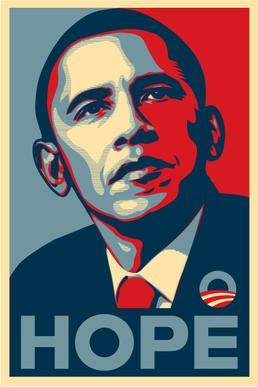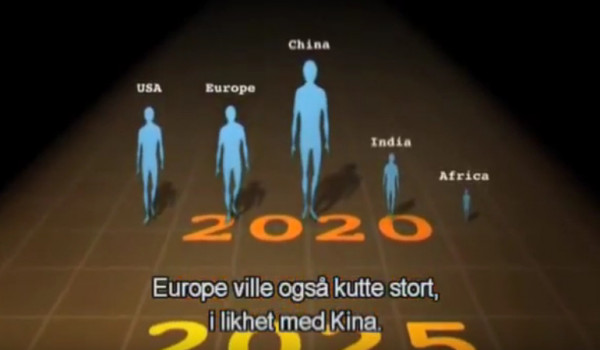The state of Degrowth at the turn of the decade – what happened to this possible "new deal" of the '10s? (1)
Let's rewind to the early 2010s, when at an event in Budapest, a book opening, organized by Vincent Liegey (Degrowth thinker and activist, author, organizer, coordinator), professor Serge Latouche was talking about the movement Degrowth, and his book, presenting the new movement as a kind of a response to a new situation. It was absolutely a revelation.
Just to remind ourselves, this was just a few years after the “credit crisis” had surfaced, which got capitalism exposed like the lab of the Wizard of Oz was as Toto dog pulled aside the curtain. The new crisis surfacing was not simply a trigger, cause criticism of global capitalism had been roaring even before 2008 – take the the exceptional documentary The Big Sellout (2007), in which not lesser an institute got exposed than the IMF, and no smaller a personality talked about it than Joseph Stiglitz, and IMF was only one element of the BIG PICTURE.
But hadn't the exposure and crisis of capitalism been enough, there was the other ting, too, Climate Change, which also had some fresh history behind, take the Pentagon Report about the Gulf Stream abruption scenario in 2003 (link-1-Washington Post, link-2 The Guardian, link-3-UCSUSA.ORG, link-4-a-sum_up, link-5-google_results), and the movie popularizing it – The Day After Tomorrow. Then, in 2009, an even newer movie came out, The Age of Stupid, which was not even a Hollywood production but an exceptional activist movie, by Franny Armstrong.
All in all, in 2011, in the year of that Degrowth event with Latouche and that book, The Discrete Charm of Degrowth, a brand new chapter of history was being written already. It was, as they referred to it, a paradigm change, and not only was there a movement like “Another World is possible”, of which in Hungary even a party had grown out and made it to the parliament “another politics is possible”, okay, to be exact: “Politics Can be Different”.
:: :: COP15 and “no Planet-B”
There were two other important precedent acts to the 2011 scene, the COP15, held in 2009, to which Franny Armstrong scheduled her movie's completion date and world premiere, and president Obama's slogan: “There's no Planet-B”. Nevertheless, Serge Latouche himself also had a not-so-short history of writing about degrowth by that time, including Farewell to Growth from 2007, not to mention his earlier books, even from the late 1990s.
As the Degrowth movement arrived to the scene in Budapest, the responses to the new situation they offered were not just a simple offer, but something that societies were actually looking for. Waiting for, if you like. It was a new philosophy, offering a new approach, and a new deal, so to speak, with a new civilizational attitude, which in short could be called “GREEN”.
It was something that meant the future – meaning that the future was possible, and although shadowed by the threat of an unfolding Climate Disaster, it was still bright and viable. Obama himself was portrayed as “hope”, which was a more meaningful message than just to be treated, retrospectively, as a 2009 campaign motif. That hope which Obama and that poster manifested, was really there in the air, and everyone who had some thinking in their mind would feel it, and cherish it.

Barack Obama "Hope" poster -- by Shepard Fairey
:: :: hopes of the early 2010s, a new paradigm, a new deal
The Degrowth movement, some 40 years after the 1972 study by the Club of Rome, ‟The limits of Growth” had come out, offered a new concept, a new perspective, and really a new deal, which both societies and 'the business class' should have accepted, and embraced. Even the European Green Party, during their primary campaign for the EU Parliament, in 2013-2014, had this campaign slogan: “Green New Deal”, and with the same title, there is now an ongoing, and still unfolding movement in the US, initiated and featured by congresswoman Alexandra Ocasio-Cortez (see the Guardian's article), and thought to be the adapted by the Democratic Party, who the last time, when choosing from between Hillary Clinton and Bernie Sanders, chose the former, who didn't prove to be a good enough choice for the majority of the American voters.
What you were hoping for in 2011 might not exactly have been what you can see today as you look around. Back then it looked like a BIG change was taking shape, big enough to be a good enough response to Climate Change (if “World War” deserves capitals, Climate Change definitely does, too). The basis for that big change would have been a paradigm change, a new way of approaching reality, including the phenomena of society, economy, future, sustainability, and a whole lot of things. Of that paradigm change, Degrowth – the movement which even had a viable concept for a “basic income” – could well have been expected to become a “leading school”, and a leading thought. And their symbol, the cute little snail should have made it to all cities as large format installations, propagating the fact that a great transition is happening.
 still shot from Franny Armstrong's Age of Stupid -- from the famous video animation "Contract & Converge"
still shot from Franny Armstrong's Age of Stupid -- from the famous video animation "Contract & Converge"
However, it didn't happen so. Degrowth hasn't become a large enough movement. Although it has great achievements, with tremendously active global networking, including annual conferences, it didn't become a new thought which will rearrange the world.
First of all, really not enough people know of it – I'd guess it is less than 1% in Hungary, and less than 2% even in Budapest – and then, whoever knows of Degrowth, they will have a notion of it obtained from the (commercial) media, which could well be suspected to be a false of at least an incomplete interpretation, not to mention distorted. Frankly, I don't think that people watching tv and their phone's screens are aware that Degrowth is offering (even demanding) an alternative to capitalism, which means that it is against capitalism, it is opposing it, totally and absolutely, and as such it is either to be viewed as anticapitalist or, the best way to put it, postcapitalist. Instead of this, I'd say, most people see Degrowth, as well as anything that has the word “GREEN” in it, as an adjustment to Capitalism, that will fix it, and make it sustainable for another hundred years or so.
The conversations I had at a party after a Degrowth festival day, did not made the impression on me that something was really cooking in terms of a systemic transformation. Instead, it looked as though people had thought of Degrowth as a within-the-system thing, kind of like what “new age stuff” must have been in the '70s and '80s – as one can see it in a Columbo episode. Correct me if I'm wrong, but the key message of Degrowth is that capitalism is unsustainable.
/quotation (originally quoted here):
Everyone wants growth in order to raise his or her position, but as everyone rises together, no one gets better. This is a zero-sum game. Worse, growth makes positional goods more expensive. These are the social limits of growth: growth can never satisfy positional competition; it can only make it worse. Growth therefore will never produce “enough” for everyone.
(Skidelsky and Skidelsky 2012).
quotation end/
the speed of the snail – what should have happened?
Of course, it is up to the movement's activists to tell what expectations they had about their movement. But still, a movement is also a collective – openly collective – project, so even outsiders can have expectations, as the movement is for all of us. In any case, I personally expected Degrowth to become a paradigm revolution, so to speak. That would have included spreading fast and having a great momentum. I do remember, however, asking Vincent Liegey once about increasing the intensity of “spreading”, and he said something like – not a quotation – Degrowth is not in a hurry, which only made the cute little snail more meaningful to me.

Over some years, one could observe how beautifully Vincent's strategy (the Degrowth movement's strategy) was working out. Thanks to his organizing activity, Budapest kind of has become a Degrowth city. Not in the sense, though, that the city had any advanced strategy about how to develop in a good manner, no, it doesn't yet have such a thing, but in that lots of “Degrowth nodes” cropped up in Budapest, and they are all connected, and embedded in a global thing. It is an amazing development, really incredible.
What from my point of view – an outsider observer's – appears to be missing is a certain speed of spreading, and the attitudinal change in the individuals as the movement spreads. As to the latter, far too many people pick up new thoughts, and far too pragmatically, I would say. You can, for example, meet climate activists who just previously worked for Shell Oil, about which the main problem is not the past but the future, namely, that it doesn't look – i.e. it didn't look in the case of those climate activists, organizers' – that they would NEVER again work for a corporation like Shell. In fact, it appears that tolerance towards heavily questionable activities of corporations is extremely high, so much so as if environmental activism were only a good youth occupation, which would make a good entry in an impressive CV, which could be later on sent to ANY corporation.
To be sure, what I think is missing is not radicalism but a clear-cut definition, a clear-cut set of definitions which would make things, such as relation to capitalism, clear. A good example could be when in the '60s, in the US, activists set up a huge frame in the street, calling it a new “frame of reference”, and gave free food to people who would walk through it, which must have been like baptizing, like a ritual engagement with a new set of thoughts.
The other thing that appears to be missing is the speed of spreading. It is a crucial thing, like in an epidemic's case, which, without a speed, without an efficiency of propagation, will die out, or at least its presence will fall back to a mere coexistence with the normal things, and become part of normal life.
These are, however, not necessarily the Degrowth movement's faults. In fact it rather seems that it performs perfectly, eminently, only the “enemy organism” became more resilient than ever.
:: :: one important factor: the resilience of Capitalism
Capitalism, as we know, has extremely flexible frames, and it can change its shape to 'contain' – like a medusa (jellyfish) gets something inside its body – anything. Seriously, ANYTHING. If something, say a movement, is against capitalism per concept, “probing bites” and “negotiations” will start, and a “siege” will start, the media will start getting to know that movement, and all kinds of interpretations will be presented on the screens, and the media consumers' perception will be… under control. The resilience of Capitalism, that it can adapt to ANYTHING, means that a ruling class – the business class – is able to keep the control over the happening.

Another factor which, so far, prevented Degrowth from becoming what it could really become, is how 'the media' divides societies into separate channels. Each and everyone can consume what they likes, media content comes to everyone “on demand” or per “observed affinity” (based on what one liked and can be predicted to like). Baudrillard pointed the separate channels effect, so to speak, in his essay “There will be no 2000”, meaning (in my loose interpretation) that even though the year 2000 would physically come to pass, it wouldn't take place as a collective experience, cause it can't be collectively perceived, thanks to the information distribution system no longer being ONE CHANNEL but divided into many. Very clearly, adapting the thought of Degrowth might not be so easy on the collective level as one would expect, thanks to 'the media' – which is the medium of the powers that be, not ours.
:: :: growing in 'quarantine'
If speed of spreading or the converting power of the movement (causing attitudinal and behavioral change) falls short, the movement in question will be able grow only in a padded and room, within frames, and to “win” (to overcome and convert) the society only in such a too far away point in the future like NEVER.
Looking at the progress that the Degrowth / postgrowth movement has made in the past 8-10 years – in this decade – it seems irrationally optimistic to hope that it will win the societies – change the attitude of the majority of societies towards economic growth, as well as to capitalism – in the next decade. But, again, anything is possible.
Either way, it feels safe to say that it is necessary to set a minimum efficiency as a criterion for a movement in terms of spreading and changing the consciousness. And… if it doesn't prove "efficient" enough, new strategies of propagation should be sought. Shouldn't they?
with the greatest admiration to Vincent Liegey, and to the movement he's such a good part of

